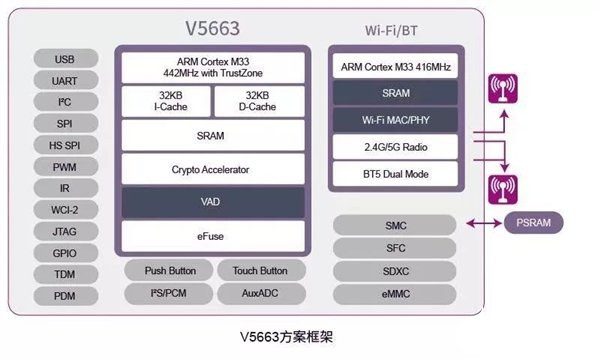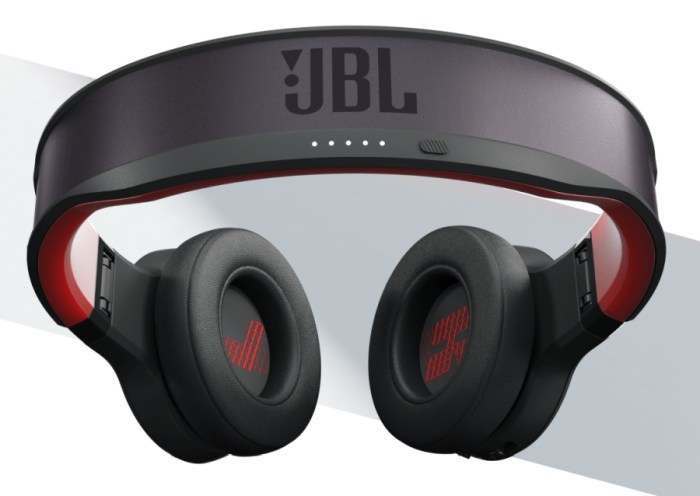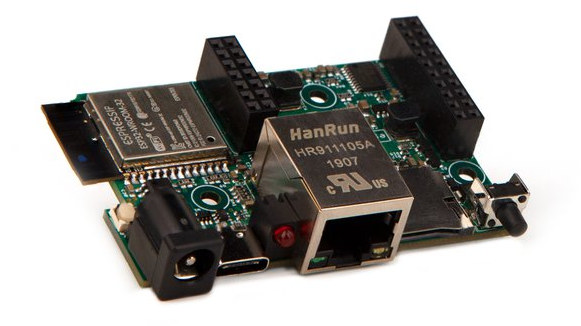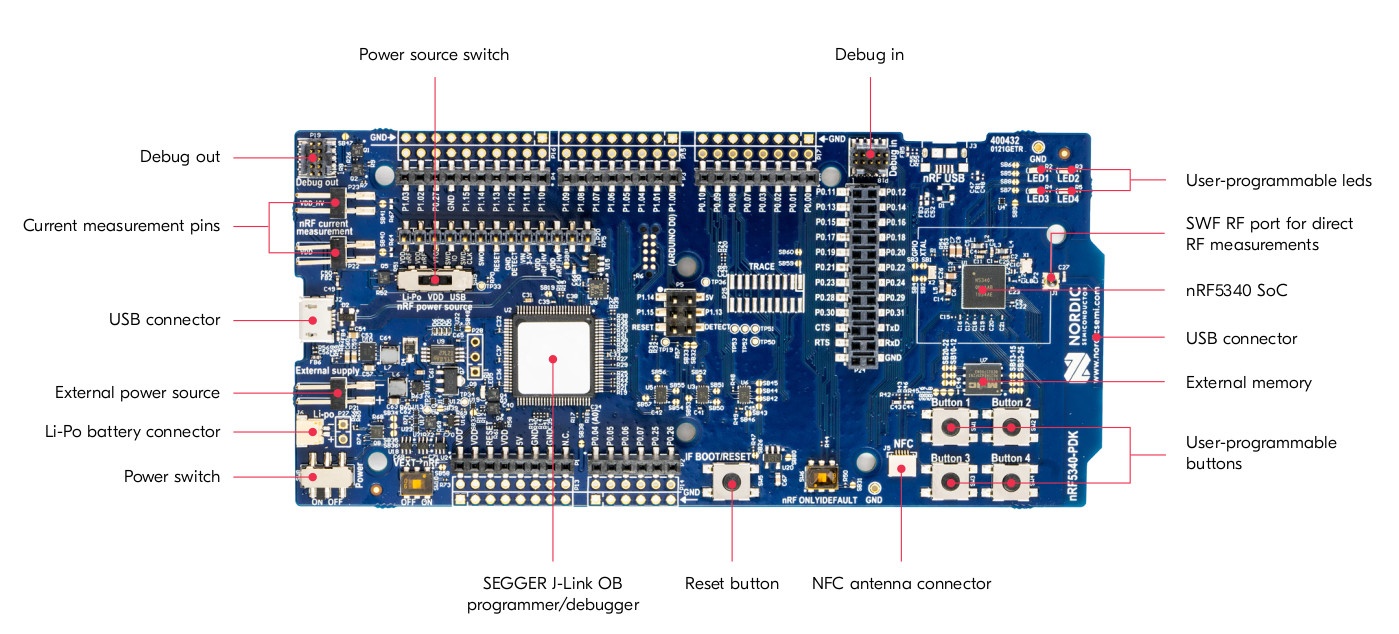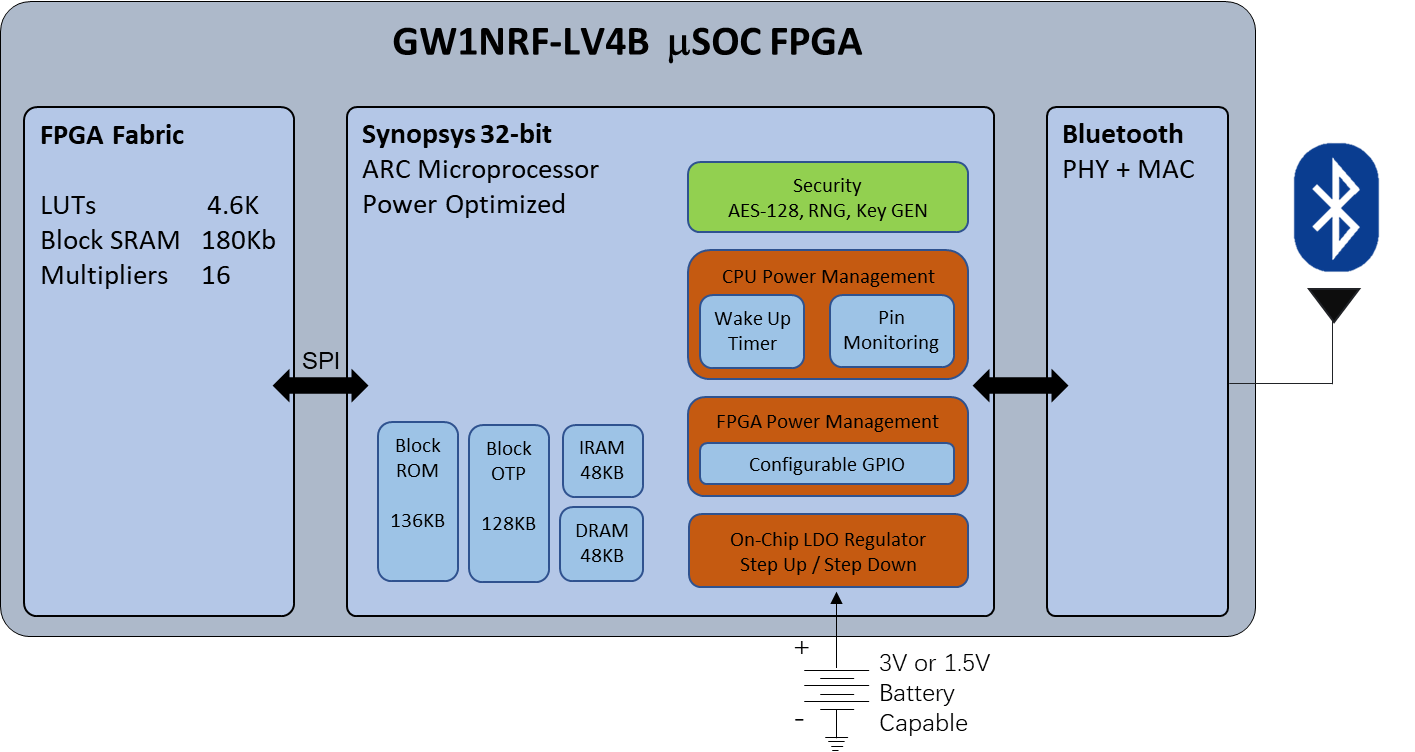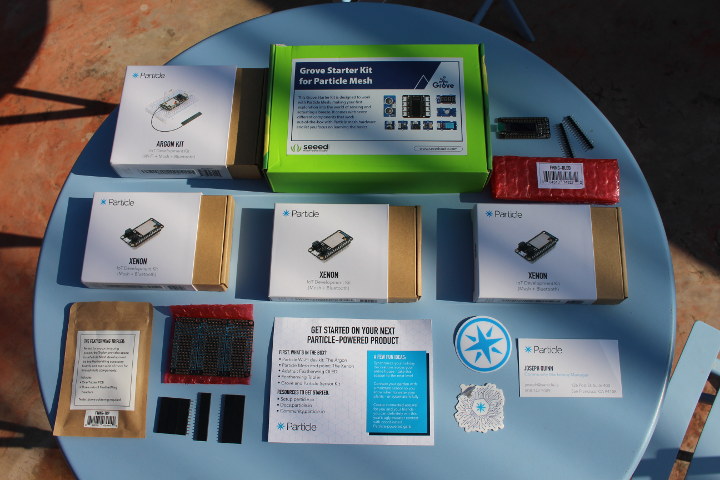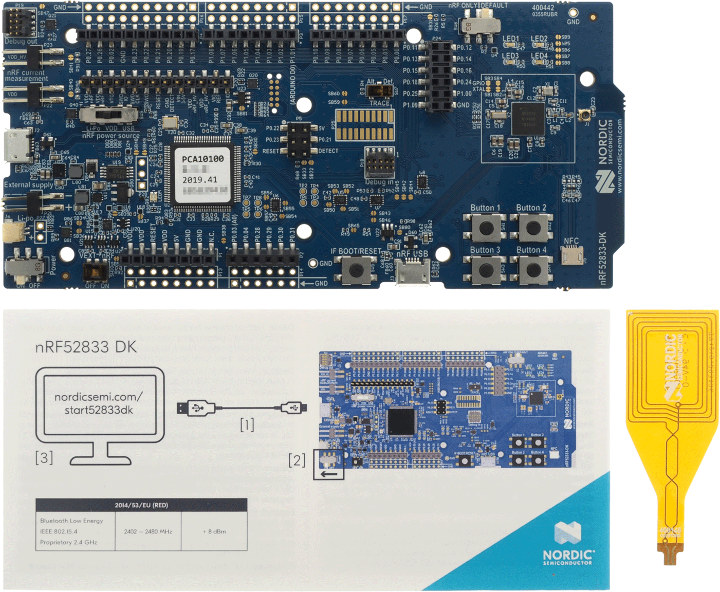UNISOC has launched a new processor for AIoT (Artificial Intelligence + IoT) applications with V5663 dual-core Cortex-M33 processor, supports for dual-band WiFi 5, Bluetooth 5.1, and audio features such as a voice activity detector and microphone array support which should make it ideal for smart speakers, and other smart audio applications. UNISOC V5663 WiSoC specifications: CPU Arm Cortex-M33 processor @ 442 MHz with TrustZone, 32KB I-cache, 32KB D-Cache for application code Arm Cortex-M33 processor @ 416 MHz for WiFI and Bluetooth Memory – Built-in SRAM + external PSRAM interface Storage – eMMC, SDXC interfaces Connectivity – Dual-band 802.11 b/g/n/ac WiFi 5 2×2 MIMO Bluetooth 5.1 dual-mode (Classic + LE) Mesh Networking for WiFi and Bluetooth Indoor Positioning – WiFi RTT, Bluetooth direction finding (AoD / AoA) Audio – Voice Activity Detector (VAD), PDM and I2S/PCM interfaces Peripherals: USB 2.0 / 3.0, eMMC I2C, SPI, HS SPI, UART GPIO, PWM IR […]
JBL Reflect Eternal are Self-Charging, Solar-Powered Headphones (Crowdfunding)
JBL REFLECT Eternal Self-Charging Headphones A simple solution to the constant problem of having to charge wireless earbuds is to make it so they never need a charge, at all. That means do not use an AC adapter or USB charger, and instead, use solar power. The JBL REFLECT Eternal headphones are solar-powered and never need charging. JBL an Iconic Brand The iconic audio company has been moving inexorably into the 21st century with Bluetooth enabled wireless speakers, headphones and other up-to-date tech-enabled audio equipment. How Solar is Used to Power the JBL REFLECT Eternal headphones The headphones can turn artificial and natural light into energy through the Exeger Powerfoyle process. The company states “more light, more playtime” which is true in its basic aspects. Self-Charging Issue The self-charging portion of the process of charging for the JBL REFLECT Eternal can be slow, and sometimes not power up the headphones […]
esp32MX-E ESP32 Board Comes with Ethernet and USB-C Ports (Crowdfunding)
We’ve already covered several ESP32 boards with Ethernet including Olimex ESP32-GATEWAY and Silicognition wESP32, and I’ve just noticed Espressif also made its own with ESP32-Ethernet-Kit. Modtronix Engineering has another take with esp32MX-E board that beside Ethernet also exposes a USB-C port, a MicroSD card slot, and also adds an STM32F0 microcontroller acting as an I2C I/O expander. esp32MX-E specifications: Wireless Module ESP32 dual-core LX6 microprocessor at 160 or 240 MHz, 4 MB Flash, 520 KB SRAM Wi-Fi 4 802.11 b/g/n Bluetooth 4.2 BR/EDR & BLE Storage – MicroSD card slot USB – USB Type-C connector for programming, power, and Virtual COM port Expansion via 14-pin and 20-pin female headers 22x I/O pins of which 4 are inputs only. 4x 5 V tolerant I/O pins Not all I/Os are available when the SD Card is used Programmable pull-up and pull-down resistors on most inputs Secondary MCU – I²C I/O expander implemented […]
Galerdo AI Swimming Tracker Gives Audio Feedback, Plays Music – No Ear Buds Needed (Crowdfunding)
Galerdo Beker Pro Galerdo is a simple to use, swimmers attendant, that holds tight to the head and collects data. It offers interactive audio, AI advice underwater and even plays music through bone-conduction. We previously reported on fitness and swimming tracker Makibes F69 IP68 Smartwatch but it lacked audio support. Feature Awards for Galerdo Galerdo won the CES 2020 Innovation Award for Swim Tracker, AI Voice Assistant and Handset Free features. Previous and Present Devices Galerdo Inc has a previous bone-conduction audio device that offered music underwater to swimmers, without the need for a headband or earbuds. The latest device simply called Galerdo adds AI data collection and spoken advice as the user is swimming, in real-time. Quick Run Down on Bone-Conduction The AI technology that is used in the Galerdo is further enhanced by the bone-conduction transfer of sound and is a technology industry that is growing rapidly. It […]
Nordic Semi nRF5340 Dual Arm Cortex-M33 SoC Supports Bluetooth 5.1/Mesh, NFC, Thread & Zigbee
After introducing nRF52833 WiSoC with Bluetooth 5.1 direction-finding support last month, Nordic Semiconductors has now launched another multi-protocol wireless SoC with nRF5340 featuring two Arm Cortex-M33 cores and supporting Bluetooth 5.1, Bluetooth Mesh, NFC, Thread & Zigbee. One of the Cortex-M33 is an application core incorporating 1 MB Flash and 512 KB RAM, as well as Arm CryptoCell-312, Arm TrustZone technology, and Secure Key Storage for the highest level of security, and the other Cortex-M33 core is used for networking functions. The company also announced nRF5340 PDK to get started with the new WiSoC. nRF5340 Dual-Core Multiprotocol SoC Key features and specifications: CPU Application core – Arm Cortex-M33 @ 128/64 MHz with 1 MB Flash + 512 KB RAM, 8 KB 2-way set associative cache; CoreMark: 510/255; CoreMark/mA: 65/76 Network core – Arm Cortex-M33 @ 64 MHz with 256 KB Flash + 64 KB RAM, 2 KB instruction cache; CoreMark: […]
GOWIN GW1NRF FPGA Comes with Bluetooth 5.0 LE Radio & 32-bit ARC MCU
I first heard about GOWIN Semiconductor last month when I found out about Sipeed Tang Nano FPGA board going for $5 and featuring GOWIN GW1N FPGA. The company has now announced what it claims is the first Bluetooth FPGA on the market with GW1NRF FPGA integrating a Bluetooth 5.0 LE radio and a 32-bit ARC microcontroller beside FPGA fabric. GOWIN GW1NRF-LV4N uSoC FPGA key features and specifications: FPGA Fabric – 4.6K LUTs, 180 Kb block SRAM, and 16 multipliers MCU – 32-bit ARC microcontroller with 48KB IRAM, 48KB DRAM 136KB block ROM, 128KB block OTG Security – AES-128, RNG, Key GEN Power Management – Wake-up timer, pin monitoring Wireless – Bluetooth LE (Low Energy) 5.0 Transceiver with PHY & MAC Power Supply – 3V or 1.5 V with battery support via on-chip LDO regulator and step-up/step-down DCDC regular Power Consumption – 5nA power disable mode Package – 6x6mm QFN48 package […]
Giveaway Week – Particle Mesh IoT Development Kit
In early 2018, Particle introduced three nRF52840 Bluetooth 5 boards, also supporting the company’s Particle Mesh technology, and selling for as low as $9. Later that year, the company send me what they call Particle Mesh IoT development kit with several of those boards to get started with their mesh networking solution. That’s what I’m offering as the 6th prize of this giveaway week. With this kit on hand, I wrote a Particle Mesh networking getting started guide showing how to configure the board in Particle.io dashboard, and easily push a new program to multiple Xenon Bluetooth 5 + Mesh boards using an Argon WiFi & Bluetooth 5 + Mesh as the gateway. I’ll give away the full kit shown in the top picture which includes: The Argon kit (ESP32 WiFi + Bluetooth + Mesh) A Grove and Particle Sensor Kit with various modules and a shield An Adafruit Featherwing […]
Nordic Semi nRF52833 WiSoC Supports Bluetooth 5.1 Direction Finding, Works up to 105ºC
Nordic Semiconductors had added a new member to their RF52 multi-protocol wireless SoCs with nRF52833 that supports Bluetooth 5.1 direction finding and can operate in a wider temperature range between -40ºC and +105°C. The company also introduced nRF52833 DK development kit for Bluetooth Low Energy, Bluetooth mesh, Thread, Zigbee (802.15.4), and 2.4GHz proprietary applications, and some companies have already announced nRF52833 modules. Nordic Semi nRF52833 Bluetooth 5.1 SoC Key features and specifications: MCU Core – Arm Cortex-M4F @ 64 MHz Memory – 128 KB RAM Storage – 512 KB Flash Connectivity Bluetooth 5.1 @ 2 Mbps/1 Mbps/500 kbps/125 kbps 802.15.4 (Thread/Zigbee) @ 250 kbps 2.4 GHz proprietary @ 2 Mbps / 1 Mbps NFC-A tag TX power – Programmable from +8 dBm to -20 dBm in 4 dB steps Sensitivity Bluetooth 5: -103 dBm at 125 kbps; -98 dB at 500 kbps; -95 dBm at 1 Mbps; -92 dBm at […]


